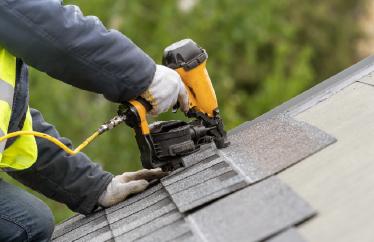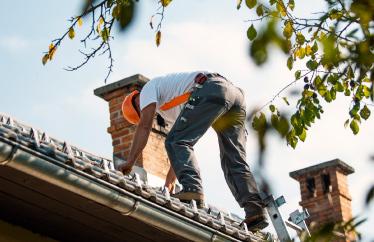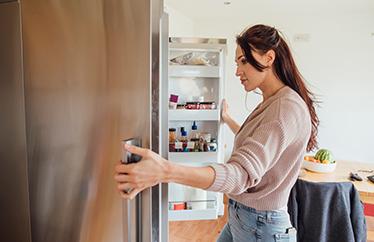So you’re thinking about buying a home in Vermont—exciting! Buying a house is a deeply meaningful decision with far-reaching considerations and impact, so there’s a lot to consider before making your choice. Everything from Vermont's varied housing market to your personal finances and your local economy can affect where you shop for your home and its cost.
The state of the market
First, the good news: Vermont’s housing market looks good for buyers in 2021. Here’s what experts say the future may hold:
-
Neutral market: Vermont’s housing market is currently considered neutral, which means that while there aren't many houses on the market, that’s normal for the state. The inventory of homes hasn’t changed much in the last few years, despite the fluctuations other states are experiencing. Also, houses are currently selling at prices close to their active listing rates.
-
Rising property values: Vermont home values are expected to increase by 6.4% this year if the state's economy and conditions stay relatively the same.
-
Low mortgage rates: 30-year mortgage rates average 2.92% in Vermont, which is lower than the 3.99% US average. These rates are expected to stay flat throughout the year.
Prepare today for your house-hunt tomorrow
Before you start the big search for your future dream home, it’s wise to run some numbers. Make a list of everything you’ll need to know for your future financial conversations. Having this information ready to go will make shopping for your new home's financing much easier. Be sure to include:
-
Credit score: When it comes to conventional loans, you want to have a score of at least 620. If that isn't where your score sits, but you still want to find a mortgage, you can explore low-credit loan options or the different ways to raise it.
-
Debt-to-income ratio: Working out your debt-to-income ratio sounds complicated, but it’s actually a pretty simple calculation. When putting together your house-hunting budget, experts advise spending less than 36% of your income on debt (including your future mortgage payment) each month.
-
Down payment: A 20% down payment is standard for a conventional loan, but some lenders allow as little as 3%.
-
Closing costs: First-time homebuyers or homeowners who have been out of the market for a while may be surprised when they see what it costs to close escrow on their new home. Be prepared to pay 2-5% of the home's value, no matter which state you are buying in. Vermont's average home value is $268,730, which means you can expect to pay between $5,375 and $13,437 in closing costs. Budgeting for these costs ahead of time will help you avoid surprises because they are typically paid out of pocket.
-
Homeownership costs: In Vermont, the average homeowner spends approximately $2,676 a year in maintenance costs. This figure is, of course, subjective, but a best practice is to save 1% of the home's total value each year to go towards maintenance costs.
Your mortgage payment
When preparing for your future mortgage payment, it's crucial to have a firm grasp of your finances and know what a lender will need to see to approve a mortgage loan.
Most lenders follow the 28/36 rule when deciding whether to approve your mortgage:
-
Your total housing costs shouldn't exceed 28% of your monthly income. This includes your future mortgage.
-
Monthly debt payments shouldn't total more than 36% of your monthly income. This is the same as your debt-to-income ratio, covered above.
For example, if you earned the median monthly income in Vermont of $5,065, your mortgage payment shouldn’t exceed $1,418 ($5,065 x 28% = $1,418).
Miscellaneous expenses
Sometimes when you’re budgeting for these large expenses, it can be easy to forget about the small, everyday costs. Take a close look at your regular purchases like trips to the coffee shop, your internet subscriptions, pet insurance, etc. If you remember to include these in your financial planning, you’ll be able to determine precisely how a new mortgage payment will affect your bank account.
Programs to help homeowners
Vermont takes pride in its state-run programs for potential and existing homeowners. The Vermont State Housing Development Authority is a great resource to look into when you start your home search, as well as the USDA and the VA for those who are eligible. So do your homework and see which of these may be able to save you money in the short-term and the long run.
Get shopping
Now that you’ve made your budget, it’s time to start looking at houses. (Yay!) First things first, you need to find the right real estate agent as early as possible. Taking the time to establish a great working relationship with your agent will ensure you are working towards the same goal during your home search. There’s no need to rush. Find one that fits your personality and expectations, and it will make all the hard work of home shopping worth it.
Once you find your ideal Vermont real estate agent, the touring can begin. Prepare to fall in love at first sight with at least one house you see. When it happens, you may want to rush through the process to close as soon as possible, but take your time. Consult with your realtor and go through all the necessary steps to make sure the house actually ticks all the wants and needs on your list.
Write a love letter
A new step in the home-buying process is the letter to the seller. A note to the seller is an opportunity to explain what it is about the home you fell in love with during the touring process. These types of letters have gained popularity in the past decade or so. They provide the home seller a more personal view of who is hoping to buy their home and may put potential home buyers ahead of any competition that may also be interested.
Once you find your dream home, get started on a letter to the seller as soon as possible. Ask your real estate agent for advice because they’ll know what works better than anyone.
Home sweet home
So you've closed, and now you own a home in Vermont. Congrats! As a new homeowner, you have so many exciting experiences ahead of you. Maybe you’re looking forward to your housewarming party, decorating, starting new traditions...and creating your system to stay on top of your accounting, mortgage, and insurance payments. Owning property means you get to handle all of your ongoing maintenance expenses and property taxes yourself, so good accounting is key. Stay organized, maintain a positive attitude, and set up a saving system to help you tackle those regular expenses that come with owning a home.
Protect what matters
Let’s be honest, there’s a lot of fine print to read during the closing process, so you may not have exactly memorized it all. But it’s imperative to review your Vermont home insurance policy carefully because having good coverage could make all the difference one day.
Educating yourself on basic insurance terms will help you understand your policy better, so you can decide if you need to amend your policy or switch carriers. You worked hard to buy your home, so make sure to take your time and ensure your home and its contents have complete protection.
Because Vermont attracts a certain nature-loving, small-town type of person, Vermonters often have tons of hobbies to keep them entertained—and hobbies tend to come with lots of equipment. If that’s you, make sure your home insurance also covers the items inside your home, not just the building itself. That way, you’re covered if something happens to your gear.
Take a new home inventory
Creating a total home inventory may sound like a challenge, but it’s so much easier with today's modern technology. Just take a quick video of your home or provide pictures as proof of what you own. The key is to stay organized. We recommend these great apps to make the process as pain-free as possible.
Classic Vermont style
Whether your style is more modern or luxurious, Vermont has a reputation for setting trends when it comes to cozy and classic. Whether it’s a DIY project or you have professional help, showing up in style is a Vermonter thing.
While this can be one of the most exciting aspects of buying a new home, pause and take your time decorating your home. Experts say it is imperative to savor the experience. It’s also a good idea to seek out the advice of those who’ve been there before, like the specialists at ApartmentTherapy.
Keep your home feeling like new
There’s no better feeling than finding and living in a home that is truly your own. It’s also, frankly, a lot of work. From the day you move in, there will always be something to be done around the house.
To keep your to-do list from spiraling out of control, look out for any minor issues that may end up costing big bucks down the line—like a crack in the foundation or a drafty window. In addition to the free smart home kits we send our customers to notify them of potential concerns, we also offer Hippo Home Care: a complimentary service that provides homeowners with immediate, expert guidance via phone or video. When you reach out, one of our Home Care Experts will work with you to identify and troubleshoot your issue. If you need in-home service or a repair, we will also recommend professional service providers in your area—an invaluable service, especially for first-time Vermont homeowners.




